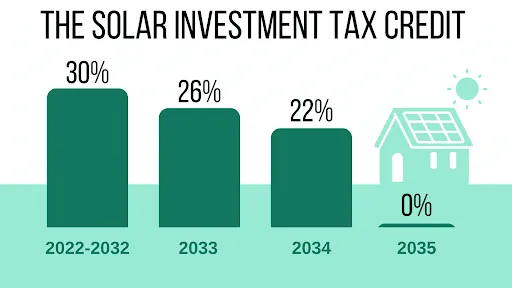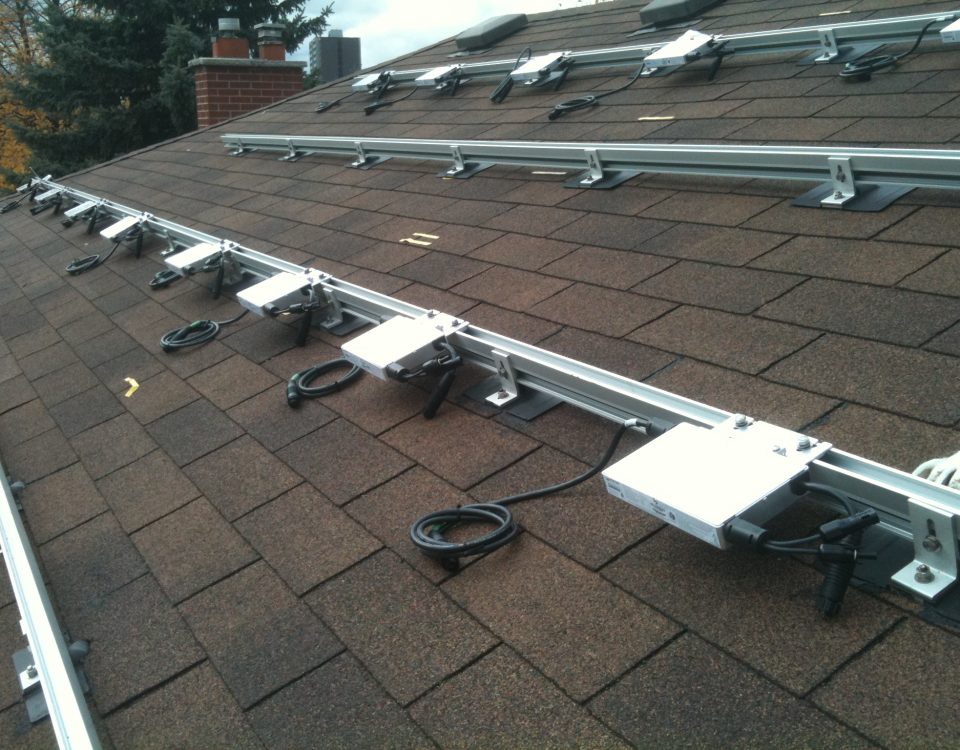
Understanding Average Canadian Household Energy Consumption and the Benefits of Solar Energy
April 17, 2025As solar energy becomes an increasingly popular and sustainable power source, choosing the right battery to store your solar energy is a critical decision. Solar batteries ensure you can use solar power even when the sun isn’t shining. Let’s explore the main types of solar batteries and evaluate the pros and cons of each.
1. Lead-Acid Batteries
Lead-acid batteries are one of the oldest and most established energy storage technologies. They are often used in off-grid solar systems due to their affordability and reliability.
Pros:
- Cost-Effective: Among the most affordable battery types on the market.
- Mature Technology: Well-understood and widely available.
- Recyclable: High recyclability rate, making them environmentally friendly in disposal.
Cons:
- Shorter Lifespan: Typically lasts 3-5 years, requiring frequent replacements.
- Low Depth of Discharge (DoD): Best when discharged no more than 50% for longevity.
- Maintenance-Intensive: Require regular maintenance to ensure optimal performance.
- Heavy and Bulky: Less energy-dense compared to modern batteries.
2. Lithium-Ion Batteries
Lithium-ion batteries are the leading choice for residential and commercial solar installations due to their superior efficiency and lifespan.
Pros:
- High Energy Density: Store more energy in a smaller footprint.
- Longer Lifespan: Last 10-15 years with proper care.
- High Depth of Discharge (DoD): Can safely discharge up to 80-90% of their capacity.
- Low Maintenance: Virtually maintenance-free.
Cons:
- Higher Cost: Significant upfront investment.
- Thermal Runaway Risk: Can overheat if not properly managed, requiring advanced safety measures.
- Recycling Challenges: Recycling infrastructure is less developed compared to lead-acid batteries.
3. Saltwater Batteries
Saltwater batteries are a relatively new and environmentally friendly option for solar energy storage.
Pros:
- Non-Toxic: Free from heavy metals and fully recyclable.
- Eco-Friendly Manufacturing: Less harmful environmental impact.
- Safe to Use: Minimal risk of overheating or catching fire.
Cons:
- Limited Availability: Still an emerging technology, not widely available.
- Lower Efficiency: Less efficient compared to lithium-ion batteries.
- Shorter Track Record: Limited data on long-term performance and lifespan.
4. Flow Batteries
Flow batteries use a liquid electrolyte stored in external tanks to store and release energy. They’re ideal for large-scale energy storage systems.
Pros:
- Scalable Storage Capacity: Easily increase storage by expanding tank size.
- Long Lifespan: Can last up to 20 years with minimal degradation.
- High Depth of Discharge (DoD): Can discharge nearly 100% without damage.
- Safe and Stable: Low risk of overheating or combustion.
Cons:
- Bulky and Heavy: Require significant space due to external tanks.
- High Initial Cost: Expensive upfront installation and setup.
- Complex System: Requires specialized knowledge for operation and maintenance.
5. Nickel-Based Batteries
Nickel-based batteries, such as nickel-cadmium (NiCd) and nickel-metal hydride (NiMH), are durable and perform well under extreme conditions.
Pros:
- Durability: Can operate in a wide temperature range.
- Long Lifespan: Lasts 10-20 years with proper use.
- Reliable: Performs well in harsh environments.
Cons:
- Environmental Concerns: NiCd contains toxic cadmium, requiring careful disposal.
- Expensive: Higher upfront costs compared to lead-acid batteries.
- Lower Efficiency: Less efficient than lithium-ion batteries.
Choosing the Right Solar Battery
Selecting the right solar battery depends on your energy needs, budget, and environmental considerations. Here’s a quick summary:
- Opt for lead-acid batteries if affordability is your priority and maintenance isn’t an issue.
- Choose lithium-ion batteries for residential systems prioritizing efficiency, compactness, and longevity.
- Consider saltwater batteries for a green and safe alternative, especially for small-scale systems.
- Use flow batteries for large-scale installations requiring high capacity and long-term reliability.
- Explore nickel-based batteries for extreme environments where durability is key.
By understanding the strengths and weaknesses of each battery type, you can make an informed decision and optimize your solar energy system for years to come.




